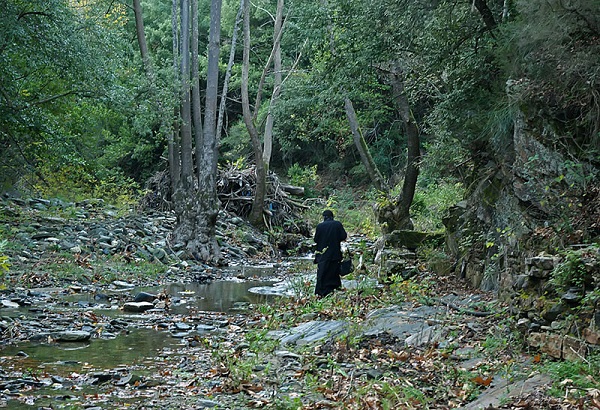The inadequacy of scientific knowledge and psychoanalysis in the spiritual life, according to Elder Sophrony (Dr. Nikolaos Koios)
25 Οκτωβρίου 2016
For spiritual people struggling to acquire and retain the knowledge of God, understood as entry into the energy of divine eternity, intellectual scientific learning is insufficient, no matter how empirical and apparently irrefutable a character it may have. Human science provides the means to express the experience of existential knowledge, but is incapable of transmitting this knowledge in an authentic manner without the co-action of grace. Were this not so, then our ‘ascents’ into the spheres of the Divine existence- of real Truth- would depend on secular education and intellectual capacity, which is not the case. At this point it becomes clear that Elder Sophrony is operating within the current of Orthodox Patristic thought, which rejected the possibility that the Divine Being could be understood through the categories of logic.

The Elder does, however, accept the possibility of sensing the inconceivability of the divinity through the natural process of philosophical reflection. The intellect then reaches the state where it ‘falls silent’. This, however, is greatly inferior to genuine knowledge of God. This process is to be found in the ascetic books of the Roman Catholic mystics. While not undervaluing or rejecting it out of hand, Elder Sophrony did not rate it among the highest degrees of the Spirit, where the intellect is not silent but is filled with the illumination of the Divine Energies and participates in the life of God. The ‘silence of the intellect’, which is encountered as ‘darkness’ and ‘night’ demonstrates that the intellect can come into authentic contemplation, but never if it is separated from the heart, which is the centre of the human person.
As regards the involvement of science in the existential knowledge of God, the view of the Elder concerning the use of psychoanalysis as an interpretation of experiences granted from above is trenchant. Scientific psychoanalysis attempts to persuade us not to give credence to our experiences. But when we’re talking about a personal manifestation of God to a person, where there can be no doubt concerning the manifestation, because He is the True Principle of everything that exists, then any attempt at psychoanalysis is misguided, since, where God acts, science is redundant. Psychoanalysis places the empirical relation between people and God on the level of imagination. This is simply not true, because the fact of empirical knowledge of God, which is called ‘contemplation’ in Patristic thought, goes far beyond the possibilities the human imagination.
The Elder draws the same conclusion where he deals with Divine Fear. The fear of God as the consequence of spiritual illumination has nothing in common with the corresponding animal instinct. So its nature lies beyond the realm of psychology.





